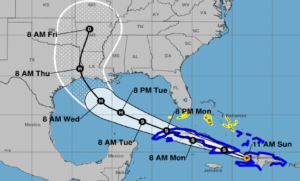13 Startups Share Dreams at ImagineK12 Demo Day

There was a full house at a Palo Alto hotel ballroom for the fifth Imagine12 Demo Day—the introduction of 13 startups to potential funders, partners, and customers. When Tim Brady, Geoff Ralston, and Alan Louie (see featured image) launched their accelerator (@imagineK12) they were able hold their culminating event in a conference room. This cohort of 13 was selected from more than 500 applicants.
With this cohort, 52 companies have been catapulted from Imagine12; they have raised more than $60 million, and have benefited thousands of teachers and students. Ralston pointed out all the positive EdTech trends and noted that the number of venture investment doubled in 2013. He expects that growth to continue through 2014 (we do too, see 14 Developments to Watch for in 2014).
New & Improved. Tim and Geoff raised a seed round so that, starting with this cohort, they are able to invest $80,000 (in a convertible note) in each of the graduating companies in addition to the $20,000 they receive to support accelerator activities. Applications for the 2014 class will be available soon. Going forward there will be one (rather than two) cohorts each year but they will be twice as many companies, about 20, in each cohort. The extra cash and runway will allow teams to work on bigger problems and build more traction.
A quick summary of the 2013 winter cohort follows.
Deans List is a gradebook for behavior and character. Founder Matt Robins is encouraged by the increased focus on habits of success (i.e., non-cognitive skills) but about these skills he said, “Teaching is tough, tracking is even tougher.” Deans List build a student portfolio that includes records of teacher conversations, office visits, suspensions, and rewards—a rich history of social emotional development. Reports back to students include lists of work a student “should be proud of’ and what the student “needs to work on.” Deans List is available on a subscription for between $3,500 and $10,000 per school depending on size.
EDpuzzle (@EDpuzzle) is video editing and data reporting for teachers—the flipped classroom 2.0. Co-founder Joaquim Sabrià (from Barcelona) said, “It’s hard to use other teacher’s videos and difficult and time consuming to create video from scratch.” EDpuzzle makes it easy to clip existing videos, add voice over, and embed quizzes. Joaquim said, “We’re giving teachers the tools to make any video their lesson.”
Kaymbu is photo and video documentation system for preschool teachers. Attempting to fill this overlooked opportunity of tapping into the 1 million early education classrooms in the US, Kaymbu provides a turnkey solution that provides software, web services and iPads so it does not need to be a daunting task for schools. It is an iPad based documentation system to help teachers capture student development and improve relationships between home and school.
Kodable, co-founded by Grechen Huebner and John Mattingly, is an iOS app/game to teach kids the fundamentals of programming in Kindergarten thru 2nd grade. Kids learn coding logic, sequence, loops, functions and debugging starting at the age of 5 because right now Grechen and John believe we are waiting too long to introduce coding concepts to students- it’s possible for kids can learn to code before they even learn to read.
Geddit is an app for the classroom because former teacher and Geddit founder Justin Mann knows feedback is fundamental to the practice of a teachers. He created a digital tool to allow for private conversations between the student and teacher. From mobile devices, students can send real time feedback on not only their level of understanding but also their confidence and comfort levels to their teachers seamlessly. Already piloted by 1800 teachers, Geddit launched paid subscriptions this week.
ClassroomIQ is a digital grading system designed by Steve Dillinger and Dave Beazley to save teachers time and broaden their knowledge of student understanding while placing student progress on the fast track. ClassroomIQ can grade any form of assessment from short answer to open response, making use of a scanning tool to collect student’s responses. Currently, ClassroomIQ is being implemented at Noble Street Charters in Chicago.
Front Row was a finalist in last year’s iZone Gap App Challenge and is an adaptive math practice app for K-8 classrooms that helps bridge the gap to implementing Common Core State Standards while giving teachers more ability to personalize learning for students in even bigger class sizes. With Front Row, students have access to individualized practice on either an iPad or Chromebook. Also, Front Row will coach parents on how to best support their students as well as work to provide PD to the districts. Teachers already using it have seen up to 2.5 grade levels of growth in just 2 months.
SchoolMint is an end to end solution for school admissions, online and simplified. Launched by Forum Desai and Gina Jhaveri in October, SchoolMint has sold to 125 schools to who do many tasks online but most admissions is paper based. Using SchoolMint can allow parents to apply to more than one school. Enrollment is just the start, soon more features such as ordering lunch,etc.
Classwork takes classrooms beyond paper and pencil and gives each student their own digital whiteboard to work on as teachers see and can respond to their work instantly. Dylan Hall and Andrew Harada Rowland taught together at a high school in Chicago and left to work together on scaling student achievement by solving problems around lesson prepping, planning, giving and receiving student feedback with technology. Classwork is already piloting in elementary through high school.
Class Central is a new MOOC discovery platform where anyone can search the 45,000 unique MOOC courses available from top universities and MOOC providers like Coursera, Udacity and edX. Courses can be searched by type, provider or subject. If MOOCs are the future, Class Central is the place to find them.
Cellabus is a cloud based device management for mobile devices developed by Yorman Garcia and Samujjal Purkay and is already piloting in 2 districts. Using the Cellabus dashboard, schools can manage, secure and monitor their devices. As the implementation of mobile devices grows, still 71% teachers express concern about losing control of their classrooms. For a yearly fee of $20 per device, the management becomes doable and school staff’s fears can be put to rest.
Edoome is a social learning platform much like Edmodo for Latin America- already present in Chile, Ecuador and planning on Brazil. Plans are in the works to also build a content marketplace.
Panorama helps schools improve through analytics and surveys, created by Aaron Feuer, CEO. The Panorama team of 8 have already sold to 4500 schools. Panorama works with schools to help produce surveys that illicit information that can help understand what is going on at a classroom or school level and then produces understandable, actionable reports that will inform the admin and staff in their decision making. The online reporting platform allows school staff to interact with the results and run custom analytics.








0 Comments
Leave a Comment
Your email address will not be published. All fields are required.